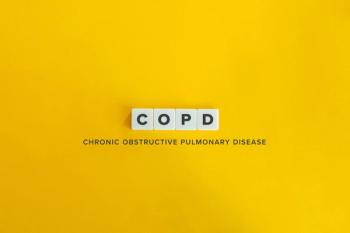
Study Evaluates CBD Effect on Lung Damage, Inflammation
CBD and its impacts on a protective peptide show that the cannabinoid may reduce lung inflammation and damage.
Findings from a recent study reported that cannabidiol (CBD) may improve lung structure and create a potent anti-inflammatory effect through the regulation of apelin, a natural peptide.1
Although the findings are not yet conclusive, the researchers suggested that CBD could play a role in enabling improvements in lung function, healthier oxygen levels, and repair of structural damage to the lungs. Further study in human trials is needed to determine whether CBD could benefit individuals with viral lung infections.
The study, published in the Journal of Cellular and Molecular Medicine, demonstrated that apelin levels decrease with acute respiratory distress syndrome (ARDS); CBD appeared to aid in normalizing apelin levels in addition to improving lung function in laboratory models of ARDS.1
Apelin is an endogenous peptide with protective effects in pulmonary tissue, made by heart, lung, and brain cells, as well as fat tissue and blood; it may have the potential to be a novel molecular target underlying the protective effects of endocannabinoid signaling, including regulation by CBD, as well as a possible biomarker for the early diagnosis of ARDS.2
The study follows
The coronavirus disease 2019 (COVID-19) primarily infects the lungs and often results in a cytokine storm, leading to diffuse alveolar damage, alveolar capillary leakage, severe hypoxemia, intense pulmonary oedema and pulmonary fibrosis, according to researchers.2 CBD, a non-psychotropic phytocannabinoid with the ability to regulate immune responses, has shown to produce anti-viral benefits in previous studies, such as down-regulation of SARS-CoV-2 receptors in human epithelia and suppression of pro-inflammatory cytokine production.2
Researchers utilized flow cytometry analyses of whole blood and found that CBD decreased T cells and increased neutrophils towards the normal level, as well as enhanced the expression of apelin in the blood following poly I:C treatment.2
The researchers explained that the study does not conclusively determine whether the association is causative; however, the study introduces the idea that, “apelin may serve a powerful and sensitive role as a pharmacodynamic biomarker, providing a biological readout to monitor the efficacy of a therapeutic intervention.”2
Study investigators explained that they have yet to determine if the association is causative, “but it is a very good indicator of the disease,” Babak Baban, DCG immunologist and associate dean for research at the Medical College of Georgia, said.2
References:
- Lopes Salles E, Khodadadi H, Jarrahi A, et al. Cannabidiol (CBD) modulation of apelin in acute respiratory distress syndrome. Wiley; October 15, 2020. doi: https://doi.org/10.1111/jcmm.15883.
- CBD helps reduce lung damage from COVID by increasing levels of protective peptide. News Release. EurekAlert; October 19, 2020. Accessed October 19, 2020. https://www.eurekalert.org/pub_releases/2020-10/mcog-chr101620.php.
Newsletter
Pharmacy practice is always changing. Stay ahead of the curve with the Drug Topics newsletter and get the latest drug information, industry trends, and patient care tips.























